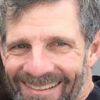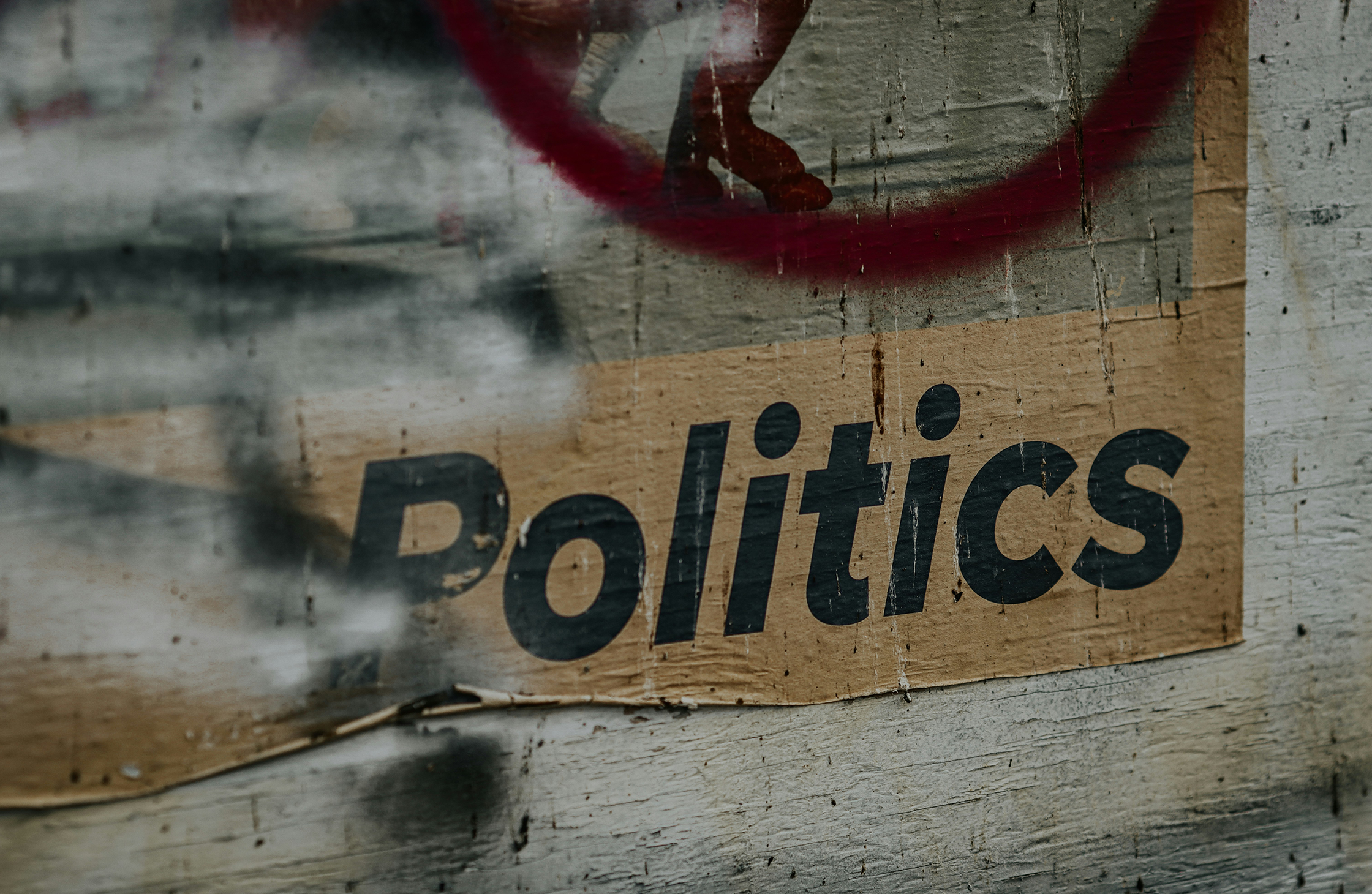Photo by Jon Tyson on Unsplash
Narrated by Ted Miller
I am a patriot. I love my country. I love its promise and potential for a better future for all.
I still believe in the oath I made as a teenager when I entered the United States Naval Academy – that I will support and defend the Constitution of the United States of America. I believe in the principles upon which this nation was founded — that all of us are created equal, that we all have the right to life, liberty, and the pursuit of happiness. And I believe that what makes this country worth defending is that we are a government of the people — that our government derives its power from the consent of the governed.
That oath, made by millions who have sworn to serve this country, was to the Constitution, not to the president, and not to a political party.
The founders worried that the rise of political parties, or factions, could destroy a government that worked for the people and could instead result in a concentration of power that would lead to tyranny.
Alexander Hamilton referred to political parties as “the most fatal disease” and he worried that the new government could be undone with the rise of parties.
James Madison wrote in the Federalist Papers about the emergence of political factions:
[A]n attachment to different leaders ambitiously contending for pre-eminence and power … have, in turn, divided mankind into parties, inflamed them with mutual animosity, and rendered them much more disposed to vex and oppress each other than to co-operate for their common good.
George Washington, in his 1796 farewell address, warned that:
The alternate domination of one faction over another, sharpened by the spirit of revenge … is itself a frightful despotism. The disorders and miseries which result gradually incline the minds of men to seek security and repose in the absolute power of an individual; and sooner or later the chief of some prevailing faction … turns this disposition to the purposes of his own elevation, on the ruins of public liberty.
Washington went on to say of political parties:
[T]hey are likely … to become potent engines, by which cunning, ambitious, and unprincipled men will be enabled to subvert the power of the people and to usurp for themselves the reins of government, destroying afterwards the very engines which have lifted them to unjust dominion.
Two and a half centuries later, the divisiveness and dominance of the modern two-party system in American politics is threatening to dismantle the government established in the Constitution — a government that works for all the people, not just those who are members of the party in power.
I’ve voted for Republicans, Democrats, and Independents. I’ve even voted for Libertarians and Social Democrats. And in nonpartisan races, I vote for the person I feel will best serve the interests of the people and organizations they are elected to serve. I’ve always evaluated candidates and policies based on what I believe would be best for my community, my state, and my country.
The Washington State Constitution (Article 4, Section 29) and state statute (RCW 29A.36.171) mandate that all city, town, and special purpose district elective offices, including school boards, are nonpartisan. This is supposed to ensure that city councils and school boards focus on community service rather than party affiliation, reducing political bias so that decisions are made based on the needs of the community rather than party politics.
Of course, local elected leaders are human and bring their personal experiences and beliefs to their decisionmaking, but they are supposed to put party politics aside and focus on the nonpartisan nature of these local offices.
I miss the days when candidates for nonpartisan offices campaigned without bringing national partisan politics into the fray. In the last several elections, the local Republican party has been endorsing candidates, bringing party politics into what should be nonpartisan races. Campaigning on divisive issues over which city councils and school boards have no authority completely overshadows any discussion of the local issues that most impact our community.
We should be talking about funding our schools to educate our children; improving the safety on our streets for vehicles, bicycles, and pedestrians; addressing homelessness; supporting our local businesses; improving our quality of life; and listening to our residents to better understand their needs in this growing community. These aren’t partisan issues, they are community issues.
Last year, I heard about an initiative to change the way Richland elects its city council members. Since its founding in 1958, Richland has had seven council members elected at-large, meaning all seven seats are elected by all voting residents in the city, regardless of where they live. A group of residents who felt their voices weren’t being heard by a city council that didn’t live in their part of town drafted an initiative that would amend the city charter, changing the way we elect our council from all at-large to a mix of five geographic district positions and two at-large positions.
Volunteers canvassed their neighbors and community members, collecting more than enough signatures to put the initiative on the ballot. I helped gather signatures, and I remember many conversations about the pros and cons of such a change. The idea of better representation resonated with a lot of city residents. Personally, I can see both sides of the argument, but I think district representation would better serve our city.
Last month, I attended a League of Women Voters forum to discuss the initiative. The large room at the Richland library was filled with people who wanted to better understand the initiative. The questions and answers were thoughtful and thought provoking. There were strong opinions both for and against the measure, but I don’t remember anyone bringing partisan politics into the discussion during the forum.
But then, the Republican party stepped in and made what I had considered from the beginning to be a nonpartisan issue into one only about party politics. Suddenly, social media — particularly Facebook — was rife with accusations that the true motivation of the petitioners was not a way for the council to better reflect the different geographic areas of the city, but instead was a plot by Democrats to somehow weasel their way onto the city council. Their evidence was that many of the organizers were obviously Democrats based on who had donated to the group leading the redistricting initiative. The narrative around the issue shifted from discussing the merits of the two sides, instead devolving into partisan bickering. Ad hominem attacks replaced thoughtful discourse.
Viewing everything through a partisan lens is like trying to capture a beautiful sunset with a camera that filters out everything but a single color. If the only test of the merit of an idea is whether it came from a Republican or a Democrat, we all lose.
There are a lot of problems in both parties, and I certainly disagree with many things both Democrats and Republicans have done recently. I believe that most Americans want to see the promise of our nation fulfilled. I used to think that political parties had similar goals for the good of all Americans, they just differed on the best path to get there. I believed that healthy debate was part of the process — that, in the end, our elected officials did what they thought was best for all of us, not just their donors and those in their own party.
I still think that’s possible, and I still have hope. But when the president — supported by his administration, congress, and the Republican party — labels Democrats as the enemy within, we no longer have two parties working toward a common goal, but a single faction usurping for themselves the reins of government.
I don’t want a one-party political system for the same reasons James Madison, Alexander Hamilton, and George Washington warned us about factions. At least for now, we have two major parties in the United States, and we need them both to reverse this race toward single party despotism that George Washington warned us against.
While we work together on a national level to make our government one that honors its principles and works for all of the people, let's honor the intent of our state constitution on a local level. Keep our nonpartisan offices nonpartisan.
Good ideas can come from anyone. Even Republicans. Even Democrats. Together, we can look beyond partisan politics to solve the local issues that matter to us all.
Vote for the candidates that best represent your interests and vote for the best ideas to make our community a better place.
Ted Miller grew up around the world but now lives in Richland with his wife. He’s a runner, actor, singer, nuclear engineer, and graduate of the U.S. Naval Academy.
Ted believes that if more people worked toward love and understanding instead of giving in to fear and divisiveness, the world would be a better place.


